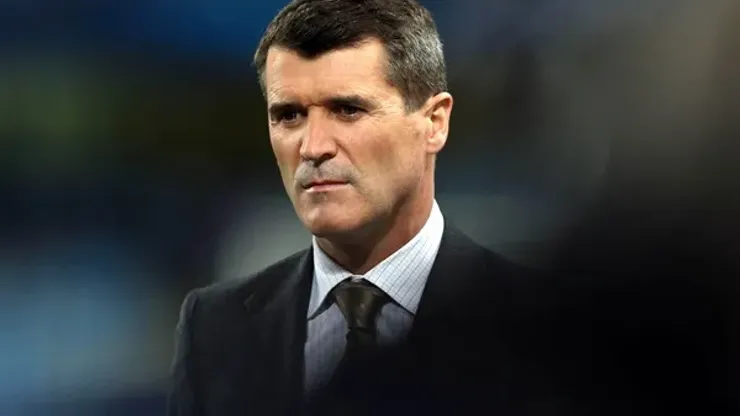Currently, in the United Kingdom the serialization of a top sporting figure’s autobiography is gripping the media and the sporting world. It has drawn responses from all quarters and no one involved comes out of this sorry saga looking terribly good.
Of course I’m referring to the autobiography of former England Cricketer Kevin Pietersen but I could have well been talking about Roy Keane’s latest tome.
Initially, I was at risk of writing an Abe Simpson ‘old man yells at cloud’ type rant about football autobiographies. However considering the topic deeper I found myself more ill at ease with how the more sensationalist publications and its serialization seem to be diverting attention away from other equally/more interesting football books and painting a false image of football literature.
The last football autobiography I read was, oddly enough, Keane, ghosted by Eamon Dunphy. Though not the first time a sportsman has told a warts and all version of their truth it felt like the precursor to a slew of ‘honest’ publications.
It is unfair to generalize because there have been plenty of eye-opening accounts too such as Left Foot Forward by Garry Nelson or Full Time: The Secret Life of Tony Cascarino.
Equally, there have been plenty of controversial publications such as David O’Leary’s Leeds on Trial or Glenn Hoddle’s My 1998 World Cup Story and Jaap Stam’s Head to Head.
The current spate of autobiographies from The Second Half, #2Sides, Always Managing and of course Alex Ferguson: My Autobiography (which was released last year)provides lots of juicy stories ripe for serialization.
It’s completely understandable to serialize the best extracts in order to garner attention and build-up hype. It’s also needed to give the reading public a taste of what the book is about. Increasingly, from my point of view, serializations are becoming an outlet to settle petty scores. Something the subjects seem very aware of.
Alex Ferguson’s My Autobiography seems little more than an attempt to knock his rivals and detractors. Famously, readers spotted 45 errors within the book prompting the publishers to offer a refund.
The extracts from Keane’s The Second Half seem to rail against everybody and focuses purely on the Irishman’s darker nature. Mark Ogden in the Daily Telegraph wrote a thoughtful piece questioning why Keane continues to portray himself in that manner especially when there is another gentler side. Ogden’s account of Keane’s compassion towards the late Gary Ablett reveals more about the character of former Manchester United captain than any of the extracts.
In Rio Ferdinand’s case his autobiography is arguably most associated with his rant about David Moyes taking chips away from the players. This overshadowed the revelation of his feelings and subsequent events stemming from the incident between his brother, Anton, and John Terry. It’s telling that Ferdinand had to take to twitter to bemoan that the serialization gave only a partial look at his story.
Perhaps Ferdinand hit on the crux of the matter but is hard to sympathize with Rio as he entered willingly into this arena. He should have been well aware of what was going to happen once an agreement was struck to serialize his autobiography.
The truth does remain that serializations only tell part of the tale and for partisan fans that’s all they need to read. For the casual reader there’s the danger that this is the perceived standard and that there isn’t much beyond in the world of football literature.
Of course this couldn’t be further from the truth. We are fortunate that there is a plethora of interesting football related subjects to read about. Whether it be Jonathan Wilson’s fascinating look into the history of tactics, Inverting the Pyramid, Ronald Reng’s tragic account of Robert Enke, A Life Too Short, Andy Dougan’s recounting of the infamous ‘Death Match’ between FC Start and Flakelf, Dynamo: Defending the Honour of Kiev, or even The Blizzard there are plenty of football books to dive into.
Football is a fascinating game, a fascinating subject with a fascinating history. Whether it be autobiographies, biographies, historical accounts or even fiction (Hull manager, Steve Bruce, has three novels to his name) pick up and read a good football book. Judge for yourself and most of all enjoy.
Don’t let serializations colour your view of a particular book, something I have been guilty of, or football books in general.
Maybe, this has been an Abe Simpson-esque mini rant but rather than fall asleep at random moments perhaps I’ll curl up and read a good book instead. Any recommendations?
200+ Channels With Sports & News
- Starting price: $33/mo. for fubo Latino Package
- Watch Premier League, Women’s World Cup, Euro 2024 & Gold Cup
The New Home of MLS
- Price: $14.99/mo. for MLS Season Pass
- Watch every MLS game including playoffs & Leagues Cup
Many Sports & ESPN Originals
- Price: $10.99/mo. (or get ESPN+, Hulu & Disney+ for $14.99/mo.)
- Features Bundesliga, LaLiga, Championship, & FA Cup
2,000+ soccer games per year
- Price: $5.99/mo
- Features Champions League, Serie A, Europa League & Brasileirāo
175 Premier League Games & PL TV
- Starting price: $5.99/mo. for Peacock Premium
- Watch 175 exclusive EPL games per season






